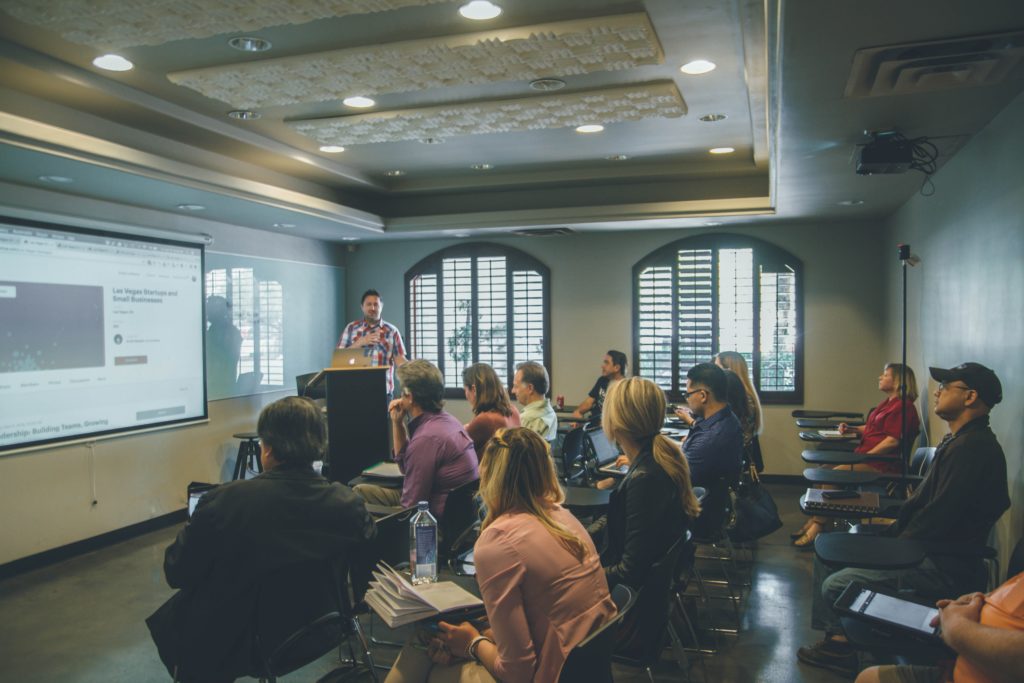In today’s world, the way we work is rapidly changing. With modern technologies on the rise, the growth of remote working, and ever-evolving global expectations, how can higher education institutions help graduates succeed?
In this article, we’ll discuss how you can prepare graduates for employment and help students achieve their goals as they enter the working world. We’ll also discuss the connection between experiential education methods—like project-based learning—and graduate employability.
Teaching employability
The skills, knowledge, and experience students need to find employment after graduation are changing. More than ever, employers are seeking graduates who can think critically, solve problems creatively, develop innovative strategies, and communicate with confidence.
A recent study found that, across industries, employers want graduates to have a range of employability skills, including:
- Communication
- Conflict resolution
- Leadership
- Problem-solving
- Teamwork
- Self-management
- Emotional intelligence
- People management
- Service orientation
- Digital and social media skills
But as educators and higher education institutions, how can we impart these important values in students? How can we ensure students fully absorb our teachings and carry them into working life?
Keys to success
With the rise of the gig economy and changing demands, many students graduate from college without jobs in their field. This can be a scary time for students, but it is also an opportunity for educators to take control and help scholars develop skills that will bring them career success.
The number one way you can help students is by preparing them with the skills, knowledge, and confidence necessary to break into their chosen industry. In the next section of this article, we’ll highlight eight effective ways to boost employment outcomes within your institution
Want to reduce student costs by 90%? Download the ‘Quality in Online Project-Based Learning’ white paper to see how top institutions are doing it.
8 ideas to help get your students job-ready before graduation
1. Research the industry landscape and know your goals
Before students start applying for work following graduation, they should set clear, actionable goals. They should also know as much about the current industry landscape as they can—such as the latest trends, news, and practices—before they begin their search.
When graduates demonstrate they have completed in-depth research, it shows employers they are:
- Passionate about what they do,
- Skilled in their industry,
- Understand which role or company would suit their skills best,
- Serious about starting a career.
Similarly, setting goals improves a graduate’s job prospects because it helps them focus on what they hope to achieve and gives them a clear path to follow. Graduates keenly aware of where they’re heading enter their field with heightened confidence and a stronger drive to succeed.
2. Do some targeted volunteering
Volunteering offers students a fantastic opportunity to build up their CVs, develop transferable skills, and gain experience in their chosen field. Soon-to-be graduates also enjoy the chance to network and build an early repertoire with industry leaders and experts.
As a bonus, volunteering allows students to give back to their community and demonstrate their passion and dedication to potential employers.
3. Write a tailored resume
Today’s employers look for candidates with resumes tailored specifically to the description. Explicitly, employers seek applicants who are:
- Committed to the job they are applying for,
- Experienced in their chosen field (either through volunteer work, passion projects, or internships),
- Knowledgeable about the company,
- Aware of the job’s unique requirements.
A tailored resume helps a graduate stand out from the crowd and is more likely to persuade employers to request an interview. Especially in highly competitive fields, it’s not enough for graduates to send a default resume off to multiple employers—they’ll need to know how to craft a relevant application for each position, insightfully repeating keywords and phrases included in the job listing.
4. Take advantage of career services
There are a host of reasons why students should take advantage of their university’s careers service. First of all, they’re there to help! Through existing networks and insider relationships, a careers service can connect students with relevant job opportunities and provide access to invaluable tools like:
- CV reviews,
- Interview coaching,
- Employability and skills analysis,
- Extra education and courses,
- Internship or work placement opportunities.
As educational leaders, we should encourage students to use these services as often as possible to maximise their chances of career success.
5. Internships often lead to work
Work-integrated learning opportunities such as internships are a powerful way to help students find a paid position following graduation. Not only do these opportunities allow students to explore different career paths and gain valuable experience, but they can also lead directly into permanent work.
Some other unbeatable benefits of internships, whether virtual or in-person, include:
- Students can gain a clearer idea of what kind of work they’d like to do in the future,
- Students gain industry experience and transferable skills,
- Students participate in projects to add to their resume or portfolio,
- Students make connections with leaders in their field.
6. Start networking early
It’s never too early for students to start networking while studying at university or college. The earlier a future graduate starts, the better prepared they’ll be when it comes time to look for a job—so make sure your pupils are well aware of the immense benefits.
Educators and higher education institutions can promote networking by providing access to work-integrated learning programs such as internships and volunteer work. These programs are fantastic for connecting students with industry spearheads and helping them grow their networking skills.
7. Be social media savvy
In today’s digital age, graduates need to understand the importance of social media. Social media savviness is an essential skill regardless of a student’s chosen career path—be it HR, marketing, or electrical engineering!
But why do today’s employers so seek social media skills?
Well, today, social media is the best way for people and businesses to stay connected, share information, and swap services. Also, many businesses now use social media for internal communications and sharing critical information with employees.
So, to make sure your students are ready for a digitally-driven workplace, include social media studies in all course outlines.
8. Develop a plan of attack
Without guidance, students might apply to every job they come across, regardless of their skills and qualifications. This approach can lead to disappointment and discouragement down the line.
Instead, encourage your students to discover their strengths, decide which industry they’d like to work in, and apply for graduate positions that align with their plan of attack. This method is more likely to lead to success and help students build confidence throughout their job search.
Experiential learning is the process of acquiring knowledge and skills through hands-on, relevant experience. It focuses on long-term projects and tasks related directly to a student’s skills, interests, and chosen career path, including internships, class projects, field research, work placements, volunteer opportunities, and more.
This type of learning prepares graduates for employment because it helps them:
- Develop transferable skills,
- Learn more about their industry,
- Gain confidence in their field,
- Meet industry experts,
- Gather valuable and pertinent experience,
- Discover their strengths and interests.
Executing experiential learning methods within your institution is guaranteed to help prepare graduates for employment in the modern world. The quickest and easiest way to achieve this is through an experiential learning platform like Practera.
How Practera can help
Practera’s innovative platform and project-based learning managed service helps educators deliver broad educational experiences covering work-integrated, project-based, and experiential learning. Using the platform, teachers in the higher education sector can connect students with employers, industry leaders, internship opportunities, and much more, helping bridge the gap between graduation and stable employment. Connecting with our team can also ensure you find the project that best suits you and your students as our team helps you set up your program with a dedicated program manager by your side.
Practera’s platform offers range of instrumental features to make experiential learning delivery seamless, including:
- Flexible powerful and customisation,
- Comprehensive template libraries,
- Whitelabeling tools,
- 360-degree feedback,
- AI learning assistants,
- In-depth analytics,
- Chat-based communication,
- Much more.
To learn more about what our team as well as Practera’s platform can do for you, download our white paper or contact our connect for a discussion today.





